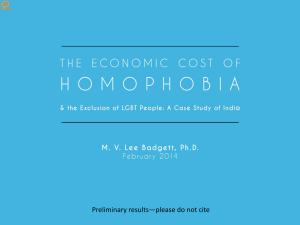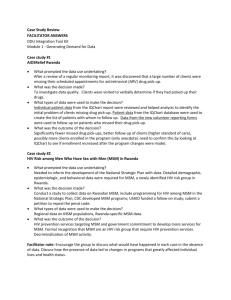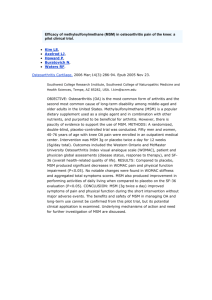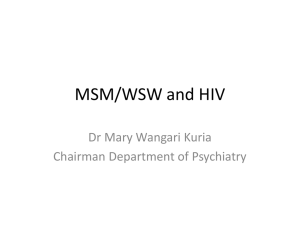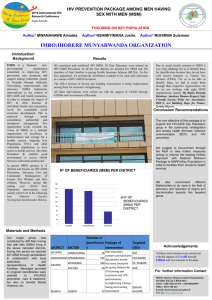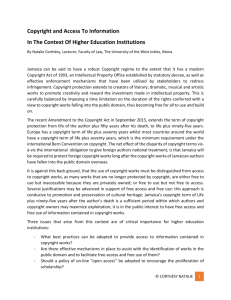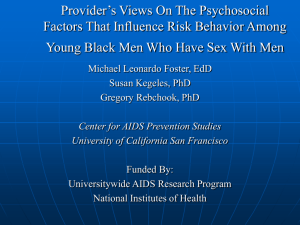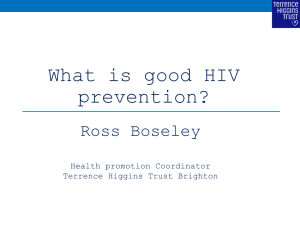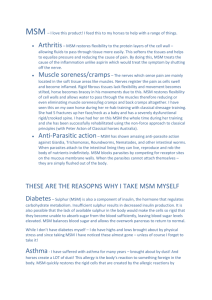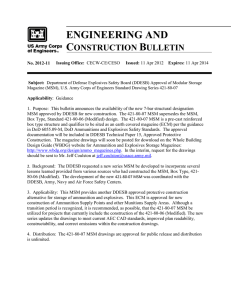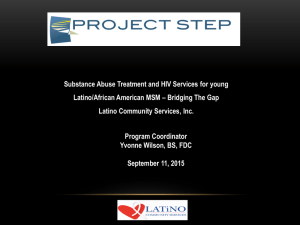Changing Social Norms within Jamaica`s Public Health System
advertisement
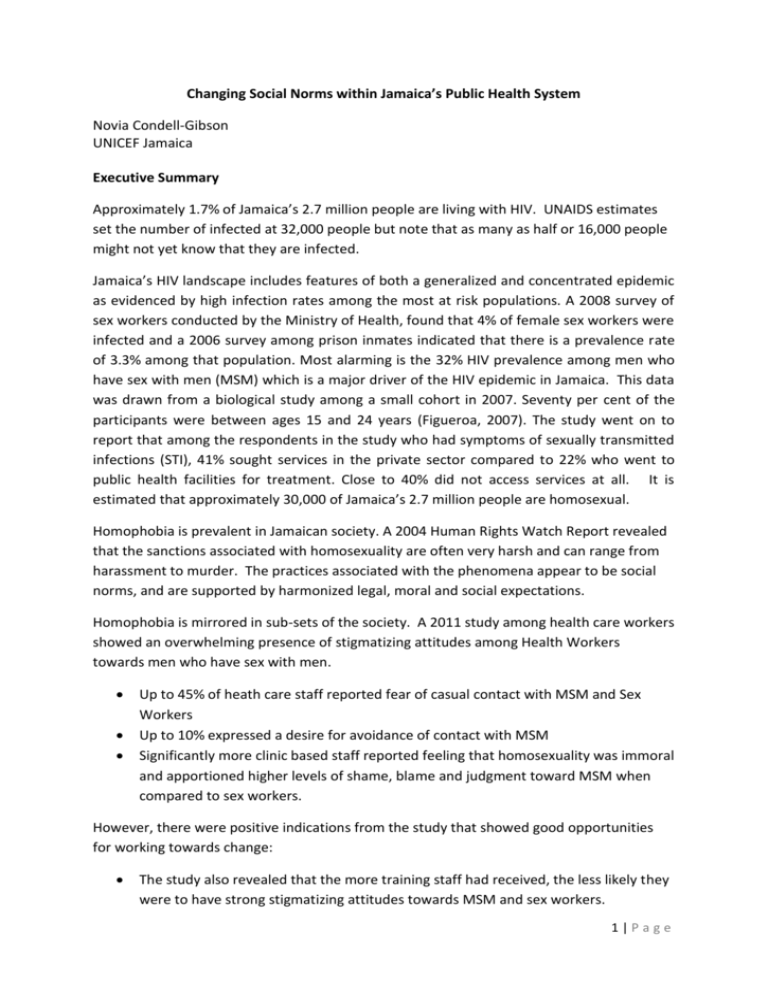
Changing Social Norms within Jamaica’s Public Health System Novia Condell-Gibson UNICEF Jamaica Executive Summary Approximately 1.7% of Jamaica’s 2.7 million people are living with HIV. UNAIDS estimates set the number of infected at 32,000 people but note that as many as half or 16,000 people might not yet know that they are infected. Jamaica’s HIV landscape includes features of both a generalized and concentrated epidemic as evidenced by high infection rates among the most at risk populations. A 2008 survey of sex workers conducted by the Ministry of Health, found that 4% of female sex workers were infected and a 2006 survey among prison inmates indicated that there is a prevalence rate of 3.3% among that population. Most alarming is the 32% HIV prevalence among men who have sex with men (MSM) which is a major driver of the HIV epidemic in Jamaica. This data was drawn from a biological study among a small cohort in 2007. Seventy per cent of the participants were between ages 15 and 24 years (Figueroa, 2007). The study went on to report that among the respondents in the study who had symptoms of sexually transmitted infections (STI), 41% sought services in the private sector compared to 22% who went to public health facilities for treatment. Close to 40% did not access services at all. It is estimated that approximately 30,000 of Jamaica’s 2.7 million people are homosexual. Homophobia is prevalent in Jamaican society. A 2004 Human Rights Watch Report revealed that the sanctions associated with homosexuality are often very harsh and can range from harassment to murder. The practices associated with the phenomena appear to be social norms, and are supported by harmonized legal, moral and social expectations. Homophobia is mirrored in sub-sets of the society. A 2011 study among health care workers showed an overwhelming presence of stigmatizing attitudes among Health Workers towards men who have sex with men. Up to 45% of heath care staff reported fear of casual contact with MSM and Sex Workers Up to 10% expressed a desire for avoidance of contact with MSM Significantly more clinic based staff reported feeling that homosexuality was immoral and apportioned higher levels of shame, blame and judgment toward MSM when compared to sex workers. However, there were positive indications from the study that showed good opportunities for working towards change: The study also revealed that the more training staff had received, the less likely they were to have strong stigmatizing attitudes towards MSM and sex workers. 1|Page Despite these findings, up to 83% of service providers felt that all people were deserving of quality care. When the challenge is viewed through a social norms lens, it is possible to more clearly segregate the various sources of motivation for these behaviours. There is also a clear view of the opportunities that exist to end harmful norms and create new norms through robust research and engagement of the network of stakeholders involved in keeping the harmful practices alive. The recommendations in this paper aim to build on legislative, social marketing and behavior change approaches. A strong component of this more comprehensive method is to encourage sector wide participation and agreement on a new set of practices that improve service delivery within the health care system and have a positive impact on service uptake among young MSM and other vulnerable groups of young people. 2|Page
